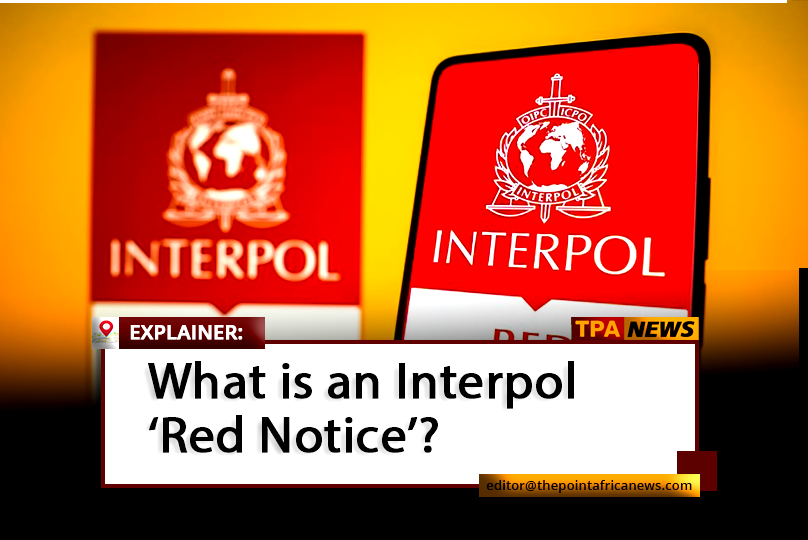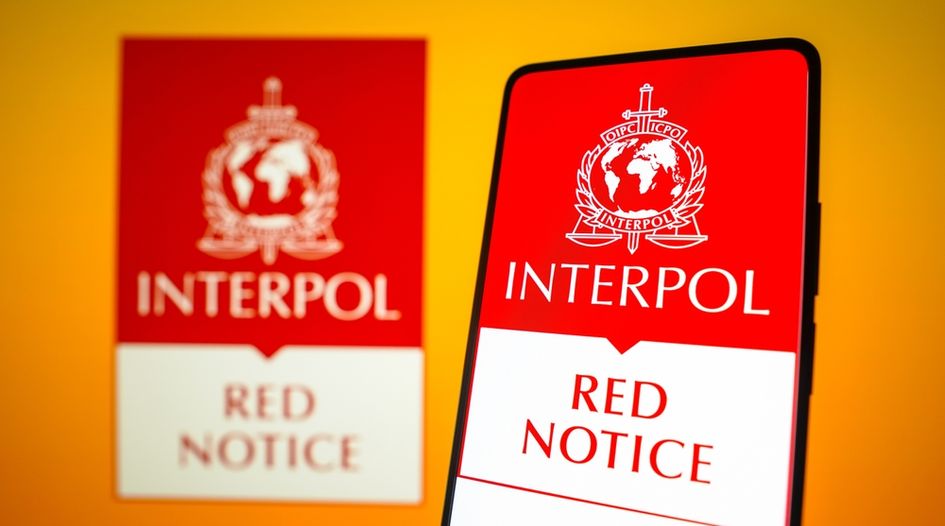By: TPA News Desk | EDITORIAL | editor@thepointafricanews.com

A Red Notice is not an international arrest warrant. It is a request to locate and provisionally arrest an individual pending extradition, surrender, or similar legal action. It is issued by Interpol at the request of a member country and circulated to all 195 member states.
A Red Notice is issued only under specific legal conditions. There must be a valid arrest warrant or court decision issued by a judicial authority in the requesting country. The crime in question must be extraditable under the laws of the countries concerned. The crime must be serious, typically punishable by at least two years or more. The notice cannot violate Interpol’s constitutional principles, such as neutrality and human rights.
Examples of crimes that can lead to a Red Notice include murder, terrorism, child exploitation, trafficking, money laundering, and war crimes.
A Red Notice can be issued against any individual who is the subject of an arrest warrant issued by a national judicial authority. The individual does not need to be present in the requesting country at the time of issuance. The person can be a citizen or non-citizen of the requesting country. Interpol does not issue Red Notices against organizations, only individuals.
A Red Notice is not legally binding in most countries, including the United States, United Kingdom, and many European nations. Whether someone is arrested depends on the domestic laws of the country where the individual is located and whether there is an extradition treaty with the requesting country. Arrest may be immediate or delayed pending verification and legal review. Courts can also challenge or block extradition if it appears politically motivated or violates human rights.
In theory, a Red Notice can be issued against a key state witness, but in practice, this is highly controversial. If a country issues an arrest warrant for someone who is a witness in another case and requests a Red Notice, Interpol may consider the request. However, Interpol may refuse or cancel the notice if it appears the request is being used to harass, silence, or intimidate a whistleblower, journalist, political dissident, or witness. The notice would violate Article 3 of Interpol’s Constitution, which prohibits actions of a political, military, racial, or religious nature.
For example, if a key witness in an arson trial is also being prosecuted for unrelated charges, such as tax fraud, a Red Notice might be requested. However, if the notice appears retaliatory or linked to their testimony, Interpol might block it after review.
A Red Notice is a powerful tool in cross-border justice but is governed by strict legal and ethical principles. Abuse of the system has led to criticism, especially in politically sensitive cases. Interpol has a Commission for the Control of Interpol’s Files that reviews contested notices.
Let us know what you think in the comments below.








Leave a Reply